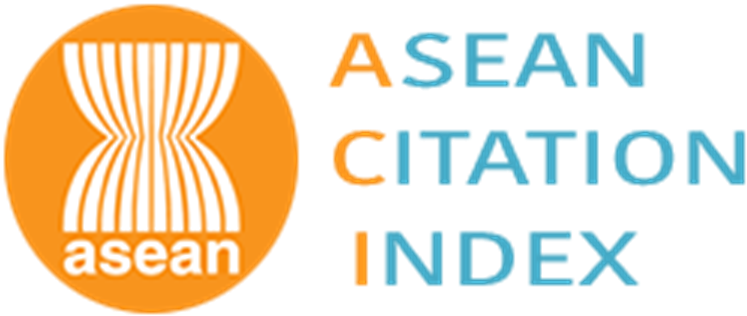รูปแบบการพัฒนาสมรรถนะของวิศวกรต้นทุนในอุตสาหกรรมก่อสร้าง
Competency Development Model for Cost Engineer in the Construction Industry
Abstract
การวิจัยครั้งนี้มีวัตถุประสงค์เพื่อ 1) ศึกษาองค์ประกอบสมรรถนะของวิศวกรต้นทุนในอุตสาหกรรมก่อสร้าง 2) สร้างรูปแบบการพัฒนาสมรรถนะของวิศวกรต้นทุนในอุตสาหกรรมก่อสร้าง และ 3) จัดทำคู่มือแนวทางการพัฒนาสมรรถนะของวิศวกรต้นทุนในอุตสาหกรรมก่อสร้าง เป็นการวิจัยแบบผสมผสานเชิงปริมาณและเชิงคุณภาพ โดยใช้เทคนิคเดลฟาย การวิจัยนี้มีกลุ่มผู้ให้ข้อมูล 2 กลุ่ม 1) กลุ่มผู้เชี่ยวชาญในการสัมภาษณ์เชิงลึก และตอบแบบสอบถามเพื่อการวิจัยด้วยเทคนิคเดลฟาย เป็นนักวิชาการ ผู้บริหารโครงการก่อสร้าง ผู้บริหารงานวิศวกรรมต้นทุน และผู้บริหารฝ่ายทรัพยากรมนุษย์ จากธุรกิจรับเหมาก่อสร้าง ธุรกิจพัฒนาอสังหาริมทรัพย์ ธุรกิจที่ปรึกษาด้านก่อสร้าง ผลิตภัณฑ์ก่อสร้างและพัฒนาองค์กร ด้วยวิธีการคัดเลือกแบบเจาะจง จำนวน 21 คน และ 2) กลุ่มผู้ทรงคุณวุฒิในการสนทนากลุ่มประชาพิเคราะห์ ประกอบด้วย นักวิชาการ ผู้บริหารโครงการก่อสร้าง ผู้บริหารงานวิศวกรรมต้นทุน ผู้บริหารด้านพัฒนาองค์กรและทรัพยากรมนุษย์ โดยใช้วิธีการคัดเลือกแบบเจาะจง จำนวน 13 คน เครื่องมือที่ใช้ในการวิจัย ประกอบด้วย แบบสัมภาษณ์กึ่งโครงสร้าง และแบบสอบถาม สถิติที่ใช้วิเคราะห์ข้อมูลเชิงปริมาณใช้ค่ามัธยฐาน และค่าพิสัยระหว่างควอไทล์ และวิเคราะห์ข้อมูลเชิงคุณภาพโดยใช้การวิเคราะห์เชิงเนื้อหา ผลการวิจัยพบว่า 1) รูปแบบการพัฒนาสมรรถนะของวิศวกรต้นทุนในอุตสาหกรรมก่อสร้าง ประกอบด้วย 3 องค์ประกอบสมรรถนะหลัก 12 สมรรถนะย่อย ดังนี้ 1) องค์ประกอบสมรรถนะหลักด้านความรู้ ได้แก่ ความรู้เกี่ยวกับธุรกิจ ความรู้เกี่ยวกับธุรกิจก่อสร้าง ความรู้เกี่ยวกับกฎหมายธุรกิจก่อสร้างและพระราชบัญญัติที่เกี่ยวข้อง 2) องค์ประกอบสมรรถนะหลักด้านทักษะ ได้แก่ ความเชี่ยวชาญการประมาณราคา การบริหารต้นทุนโครงการก่อสร้างและผลกำไรความสามารถการใช้เทคโนโลยีสารสนเทศสมัยใหม่ การสื่อสารเชิงสร้างสรรค์ ความเป็นผู้นำทีมงาน การบริหารโครงการก่อสร้าง และ 3) องค์ประกอบสมรรถนะหลักด้านคุณลักษณะที่พึงประสงค์ ได้แก่ จริยธรรมการดำเนินธุรกิจ ความใฝ่รู้และแบ่งปัน ความมุ่งมั่นทำงานให้สำเร็จ 2) คู่มือแนวทางการพัฒนาสมรรถนะของวิศวกรต้นทุนในอุตสาหกรรมก่อสร้าง มีความเหมาะสม สอดคล้องกับเนื้อหาและสามารถนำไปใช้ประโยชน์ได้จริง โดยได้รับความเห็นชอบจากผู้ทรงคุณวุฒิด้วยมติเอกฉันท์คิดเป็นร้อยละ 100
The purposes of this research were 1) to study the elements that indicate competency of cost engineers in the construction industry 2) to create a competency development model for cost engineers in the construction industry and 3) to create a guideline for the competency development manual of cost engineers in the construction industry. This research was mixed method of quantitative and qualitative research which used Delphi technique and had 2 groups of information providers 1) research which used Delphi technique answering and in-depth interview experts, consisting of 21 purposively sampled experts in academics, construction project managers, cost engineering executives and human resource executives from the construction business, real estate development business and construction, construction products, and organization development consulting business 2) the group of 13 purposively sampled experts in focus group discussion, consisting of academics, construction project managers, cost engineering executives and human resource and organization development executives. The tools used in the research consist of interview form and questionnaire. The statistical methods used to analyze quantitative data were median and interquartile range. The qualitative data was analyzed using content analysis. The results show that 1) The competency development model for cost engineer in the construction industry consists of 3 core competency elements, 12 sub- competencies as follows 1) knowledge core competency elements, namely business knowledge, construction business knowledge and knowledge in construction business laws and related laws 2) skills core competency elements, namely expertise in cost estimation, construction project cost and profit management, ability to use modern information technology, creative communication and team Leadership, construction project management, and 3) attribute core competency elements, namely business ethics, curiosity and sharing and commitment to succeed. 2) The guideline for competency development for cost engineer in the construction industry is deemed appropriate, consistent with the content and can be put to practical use. The guideline has been approved by the experts with a unanimous resolution of 100 percent.
Keywords
[1] T. Sridaranont, “A study of the situation and impact of construction technology in the Thai construction industry,” M.S. Thesis, Department of Industrial Engineering and Management, Faculty of Engineering and Industrial Technology, Silpakorn University, 2019 (in Thai).
[2] K. Techakanont, “Thai construction industry to international..big and small must go together,” Prachachat Business newspaper, Bangkok, Thailand, 2009 (in Thai)
[3] Kasikorn Research Center. (2021). Drilling the direction of Thai construction 64. Kasikorn Bank. Bangkok, Thailand. [Online] (in Thai). Available: https://www.kasikornbank.com/th/business/ sme/KSMEKnowledge/article/KSMEAnalysis/ Pages/krconstrution.aspx
[4] Krungsri Research Center. (2021). Business/ Industry Outlook 2019–2021: Construction business / industry trends in 2019-21. Krungsri Bank. Bangkok, Thailand. [Online] (in Thai). Available: https://www.krungsri.com/th/ research/industry/industry-outlook/Construction- Construction-Materials/ Construction-Contractors/ IO/io-Construction -Contractors-21
[5] Australian Institute of Quantity Surveyors. Competency Standards for Quantity Surveyors Construction Economist and Cost Engineers, The Australian Institute of Quantity Surveyors. ABN 97 008 485 809, 2012.
[6] Standard of Elemental Construction Cost Code for Building, Engineering Institute of Thailand, 2012 (in Thai).
[7] T. Pichayathdapong, “Strategies for using the competency system in human resource management to drive the organization towards excellence over competitors,” Damrong Rajanuphap Journal, vol. 6, no. 20, pp. 16–63, 2006 (in Thai).
[8] D. C. McClelland, “Testing for competence rather than for intelligence,” American Psychologist, vol. 28, pp. 1–14, 1973.
[9] Royal Institution of Chartered Surveyors, “The APC requirements and competencies,” Royal Institution of Chartered Surveyors, London, 1998.
[10] S. N. A. M. Noor, S. U. M. Tobi, and K. R. Salim, “Competencies of quantity surveyors in construction industry: Document reviews from different quantity surveyor professional bodies,” presented at the IOP Conference Series Materials Science and Engineering, 2020.
[11] Y. Panitanwong, T. Boonyasopon, S. Wisuttipaet, and T. Roopsing, “The development model of the management’s potential in construction service industry for Thailand 4.0,” The Journal of KMUTNB, vol. 30, no. 2, pp. 351–360, 2020 (in Thai).
DOI: 10.14416/j.kmutnb.2024.03.015
ISSN: 2985-2145





